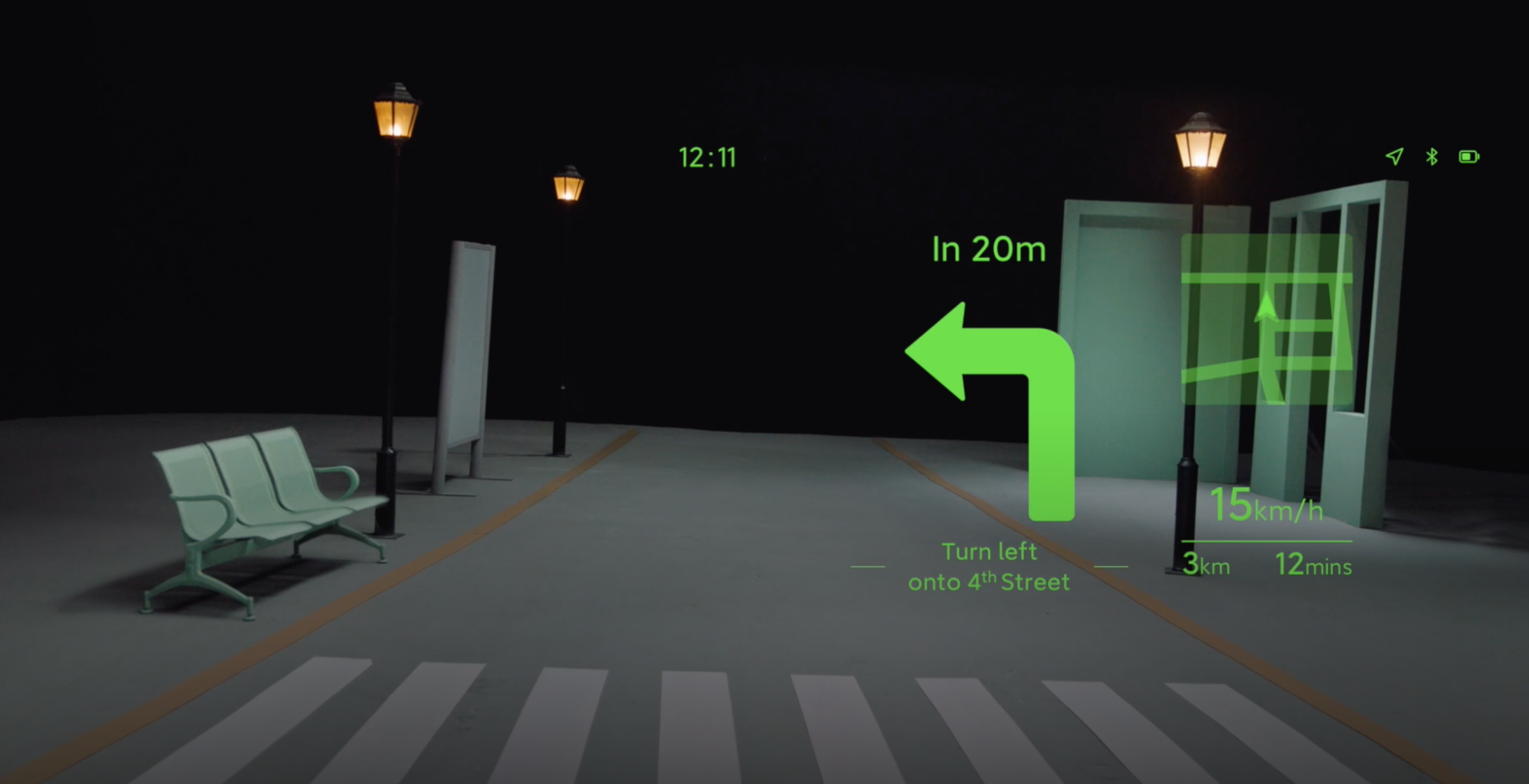Xiaomi’s smart glasses concept beam messages and translated text into your eyes in real time
The glasses, which are only a concept currently, can display messages, make calls, navigate, and translate text
Chinese smartphone manufacturer Xiaomi has revealed its concept smart glasses that can display messages and notifications, make calls, capture photos, and translate text.
The smart glasses, which do not yet have a name, use MicroLED technology with a high pixel density to make a display chip measuring only 2.4-by-2.02 millimetres with a peak brightness of two million nits; the display itself is the size of a grain of rice.
MicroLED is set to be the successor to OLEDs. They are individually lit and allow for brighter displays and deeper detail in black areas, but can have a higher pixel density and a loner lifespan.
Xiaomi says that the smart glasses integrate 497 different components so it can function “as a new smart terminal with independent operating capability”, allowing it to act as a camera with a 5MP lens on the front, navigator, or teleprompter.

It also has a built-in smart assistant called XiaoAI, which features on its smartphones in the same way Bixby does on Samsung phones, and which the company says is the “primary interaction method”.
The company says they had “many in-depth discussions” to decide which features were the most necessary, such as only sending notifications for certain updates like alarms or messages from important contacts.
The glasses apparently have a quad-core ARM processor, a touch pad, wifi and Bluetooth connectivity, and run on the Android operating system – weighing only 51 grams.
This news comes shortly after Facebook announced its long-rumoured ‘smart glasses’ in partnership with Ray-Ban, which feature two front-facing cameras to quickly capture pictures and video, but with do not have the augmented reality capabilities touted by Xiaomi.
The social media giant does, however, have a more adept pair of smart glasses in the works, which will “add a 3D layer of useful, contextually-relevant and meaningful information on top of the physical world” according to the company’s blog post.
Facebook says the device could help with everyday tasks, such as finding keys, navigating a new city, or “capturing a moment”.
Apple, which is launching the iPhone 13, has also been said to be developing AR glasses - although the coronavirus pandemic and a long development process means they are targeted for a 2023 release.
Join our commenting forum
Join thought-provoking conversations, follow other Independent readers and see their replies
Comments
Bookmark popover
Removed from bookmarks